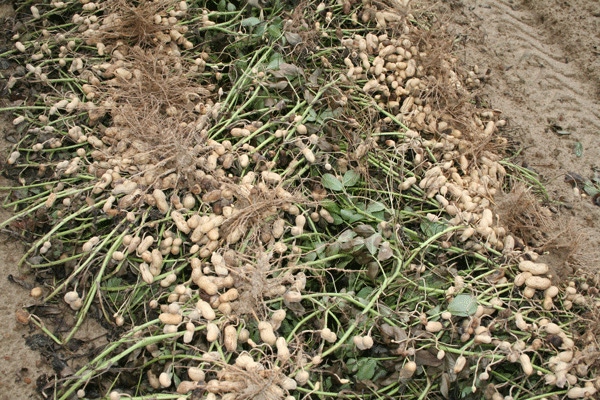
Georgia peanut growers to vote on assessment increase
• The Georgia Peanut Commission’s board of directors decided to conduct the referendum after holding a public hearing in Tifton regarding the proposal to increase the assessment to $3 per ton.• The need to increase research funding was the main reason those speaking in favor of the assessment increase gave during their testimony.
February 18, 2011

During a mail referendum scheduled for March 15-April 15, Georgia peanut growers will determine whether to increase the $2 per ton assessment they currently pay to fund the Georgia Peanut Commission by $1 per ton.
The commission's board of directors decided to conduct the referendum after holding a public hearing in Tifton Feb. 9 regarding the proposal to increase the assessment to $3 per ton.
The commission assessment has not been increased since 1980 when Georgia peanut producers voted to increase their assessment from $1 per ton to $2 per ton. Nine growers, one researcher, one UGA Extension administrator and one buying points representative spoke in favor of increasing the assessment, citing the benefits growers have received from the promotion, research and education programs the commission coordinates.
One grower from Dougherty County expressed opposition to the proposal via a written statement that was read into the hearing records by a GPC staff member.
The need to increase research funding was the main reason those speaking in favor of the assessment increase gave during their testimony. Larry Cunningham, GPC advisory board member, voiced the need to fund research on the burrower bug, which decreased the quality and value of a significant amount of Georgia's 2010 peanut crop. Without research, he said, this bug could be as devastating to the industry as the boll weevil was to cotton.
Decatur County peanut grower Judd Greene credited past commission-funded research that developed disease-resistant varieties, such as Georgia Green, with helping growers overcome tomato spotted wilt virus. He said new disease-resistant varieties, like Tiftguard, will be even more important as growers lose fungicides like Temik. "It is hard for farmers to commit to spend more money, but I'm going to encourage all of my neighbors and friends that we must support this checkoff. If you think about it, a dollar won't buy today what it did in 1980," Greene said.
"The budgets are decreasing. Everything is getting higher and higher. The state of Georgia is broke. I don't see how the government is going to come up with the money to supply the research we need. I think it's up to us, the producers, to do it ourselves. This checkoff program is the best way I know to do it."
The peanut commission will mail ballots to all Georgia peanut producers on record by March 15 with voting instructions. If you are a peanut grower and do not receive a ballot by March 15, contact the Georgia Peanut Commission at 229-386-3470.
For the referendum to pass, at least 25 percent of all producers on record must submit a ballot and at least 66 and 2/3 percent of the ballots cast must favor increasing the assessment.
For more information from the Georgia Farm Bureau visit http://www.gfb.org.
You May Also Like



